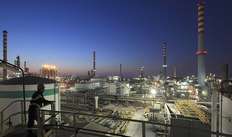- €294 million invested in reconversion, with an additional €73 million planned for biomass pre-treatment by Q3 2020
- Conversion began in April 2016, taking over 3 million work hours
- The plant processes up to 750,000 tonnes/year of biofuels from used vegetable oil, animal fat, algae, and by-products
- Emissions reduced by over 70% compared to traditional production cycles

Overview
Eni has inaugurated a bio-refinery in Gela, Caltanissetta, with a processing capacity of up to 750,000 tonnes per year. The facility can treat used vegetable oil, animal fat, algae, and by-products to produce high-quality biofuels.
Investment and Timeline
Since 1962, all petrochemical plants in Gela have closed. Eni has invested €294 million in reconverting the refineries and plans to invest an additional €73 million for preliminary activities and biomass pre-treatment, expected to be completed by Q3 2020. The conversion process began in April 2016 and required over 3 million work hours.
Technological Advancements
The Ecofining™ plant was created by modifying two desulphurisation units and building a steam reforming unit to produce hydrogen, essential for hydrogenated vegetable oil (HVO) biodiesel. This biodiesel, when added to fossil diesel at 15%, forms Enidiesel+.
Environmental Impact
The bio-refinery will reduce emissions of SO2, NOx, CO2, and dust by more than 70% compared to traditional production cycles. Eni has spent over €800 million on reclamation since 2000. The site will undergo several operations to improve its visual impact, including demolishing old infrastructure and reducing the height of flares and chimneys.
Operational Flexibility
The Gela bio-refinery is designed to handle advanced and unconventional loads up to 100% of its processing capacity. It can process second-generation raw materials from food production waste, regenerated used cooking oil (RUCO), animal fat (tallow), and by-products from vegetable oil processing, promoting the circular economy.

